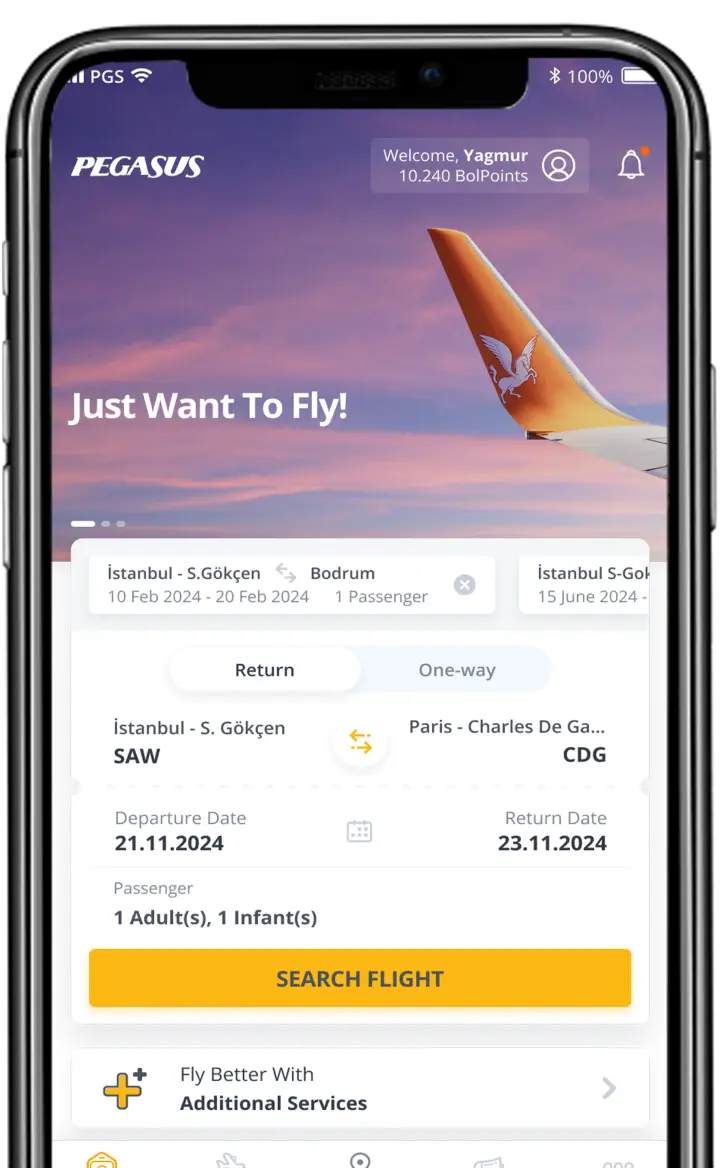 City Guide
City Guide
Baku Travel Guide
SEARCH CHEAP FLIGHTS
Other Topics
Other Cities
-
Abu Dhabi Travel Guide

-
Adana Travel Guide

-
Agri Travel Guide

-
Aktau Travel Guide

-
Aktau Travel Guide

-
Alanya Travel Guide

-
Albania Travel Guide

-
Alexandria Travel Guide

-
Almaty Travel Guide

-
Amasya Travel Guide

-
Amman Travel Guide

-
Amsterdam Travel Guide

-
Ankara Travel Guide

-
Antalya Travel Guide

-
Astana Travel Guide

-
Athens Travel Guide

-
Austria Travel Guide

-
Azerbaijan Travel Guide

-
Baghdad Travel Guide

-
Bahrain Travel Guide

-
Balikesir - Edremit Travel Guide

-
Barcelona Travel Guide

-
Basel Travel Guide

-
Batman Travel Guide

-
Batumi Travel Guide

-
Beirut Travel Guide

-
Belgium Travel Guide

-
Belgrade Travel Guide

-
Berlin Travel Guide

-
Bingol Travel Guide

-
Birmingham Travel Guide

-
Bishkek Travel Guide

-
Bodrum Travel Guide

-
Bologna Travel Guide

-
Bosnia and Herzegovina Travel Guide

-
Bratislava Travel Guide

-
Brussels Travel Guide

-
Bucharest Travel Guide

-
Budapest Travel Guide

-
Cairo Travel Guide

-
Casablanca Travel Guide

-
Charleroi Travel Guide

-
Chișinău Travel Guide

-
Cluj-Napoca Travel Guide

-
Cologne Travel Guide

-
Copenhagen Travel Guide

-
Corlu Travel Guide

-
Czech Republic Travel Guide

-
Dalaman Travel Guide

-
Dammam Travel Guide

-
Denizli Travel Guide

-
Denmark Travel Guide

-
Doha Travel Guide

-
Dortmund Travel Guide

-
Dubai Travel Guide

-
Düsseldorf Travel Guide

-
Edinburgh Travel Guide

-
Egypt Travel Guide

-
Eindhoven Travel Guide

-
Elazig Travel Guide

-
Erbil Travel Guide

-
Erzincan Travel Guide

-
Erzurum Travel Guide

-
Finland Travel Guide

-
France Travel Guide

-
Frankfurt Travel Guide

-
Ganja Travel Guide

-
Gaziantep Travel Guide

-
Geneva Travel Guide

-
Georgia Travel Guide

-
Germany Travel Guide

-
Giresun Travel Guide

-
Greece Travel Guide

-
Grozny Travel Guide

-
Hamburg Travel Guide

-
Hannover Travel Guide

-
Hatay - Antakya Travel Guide

-
Helsinki Travel Guide

-
Hopa Travel Guide

-
Hungary Travel Guide

-
Hurghada Travel Guide

-
Igdir Travel Guide

-
Iran Travel Guide

-
Iraq Travel Guide

-
Istanbul Travel Guide

-
Italy Travel Guide

-
Izmir Travel Guide

-
Jeddah Travel Guide

-
Jordan Travel Guide

-
Kahramanmaras Travel Guide

-
Karachi Travel Guide

-
Kars Travel Guide

-
Kayseri Travel Guide

-
Kazakhstan Travel Guide

-
Kazan Travel Guide

-
Kharkiv Travel Guide

-
Kherson Travel Guide

-
Konya Travel Guide

-
Kosovo Travel Guide

-
Krasnodar Travel Guide

-
Kutaisi Travel Guide

-
Kuwait Travel Guide

-
Kuwait Travel Guide

-
Kütahya Travel Guide

-
Kyiv Travel Guide

-
Kyrenia Travel Guide

-
Kyrgyzstan Travel Guide

-
Lebanon Travel Guide

-
Leipzig Travel Guide

-
Lesvos (Mytilene) Travel Guide

-
London Travel Guide

-
Lviv Travel Guide

-
Lyon Travel Guide

-
Macedonia Travel Guide

-
Madrid Travel Guide

-
Makhachkala Travel Guide

-
Malatya Travel Guide

-
Manama Travel Guide

-
Manchester Travel Guide

-
Mardin Travel Guide

-
Marseille Travel Guide

-
Medina Travel Guide

-
Milan Travel Guide

-
Mineralnye Vody Travel Guide

-
Moldova Travel Guide

-
Morocco Travel Guide

-
Moscow Travel Guide

-
Munich Travel Guide

-
Mus Travel Guide

-
Muscat Travel Guide

-
Netherlands Travel Guide

-
Nicosia Travel Guide

-
Northern Cyprus Travel Guide

-
Northern Cyprus Travel Guide

-
Norway Travel Guide

-
Nuremberg Travel Guide

-
Odessa Travel Guide

-
Oman Travel Guide

-
Ordu Travel Guide

-
Osh Travel Guide

-
Oslo Travel Guide

-
Pakistan Travel Guide

-
Paris Travel Guide

-
Plovdiv Travel Guide

-
Podgorica Travel Guide

-
Portugal Travel Guide

-
Prague Travel Guide

-
Pristina Travel Guide

-
Qatar Travel Guide

-
Ras Al Khaimah Travel Guide

-
Rhodes Travel Guide

-
Rize Travel Guide

-
Romania Travel Guide

-
Rome Travel Guide

-
Rotterdam Travel Guide

-
Russia Travel Guide

-
Samsun Travel Guide

-
Sanliurfa Travel Guide

-
Sarajevo Travel Guide

-
Saudi Arabia Travel Guide

-
Scotland Travel Guide

-
Serbia Travel Guide

-
Sharm El-Sheikh Travel Guide

-
Shymkent Travel Guide

-
Sinop Travel Guide

-
Sivas Travel Guide

-
Skopje Travel Guide

-
Sofia Travel Guide

-
Spain Travel Guide

-
St. Petersburg Travel Guide

-
Stockholm Travel Guide

-
Stuttgart Travel Guide

-
Sulaymaniyah Travel Guide

-
Sweden Travel Guide

-
Switzerland Travel Guide

-
Tabriz Travel Guide

-
Tbilisi Travel Guide

-
Tehran Travel Guide

-
Tel Aviv Travel Guide

-
Tirana Travel Guide

-
Trabzon Travel Guide

-
Turkey Travel Guide

-
Ukraine Travel Guide

-
United Arab Emirates Travel Guide

-
United Kingdom Travel Guide

-
Van Travel Guide

-
Venice Travel Guide

-
Vienna Travel Guide

-
Yerevan Travel Guide

-
Zagreb Travel Guide

-
Zaporizhia Travel Guide

-
Zurich Travel Guide

Located on the west coast of the Caspian Sea, Baku is the capital of the Republic of Azerbaijan. It is the largest city and the most important cultural and commercial center of the Caucasus. In addition to being one of the most important industrial, commercial and cultural centers of the country, Baku is also important as a port city. The majority of the inhabitants of the city are Azerbaijanis. The years spent under Arab, Ottoman and Russian sovereignty is one of the biggest reasons for the city's enrichment in terms of cultural heritage.
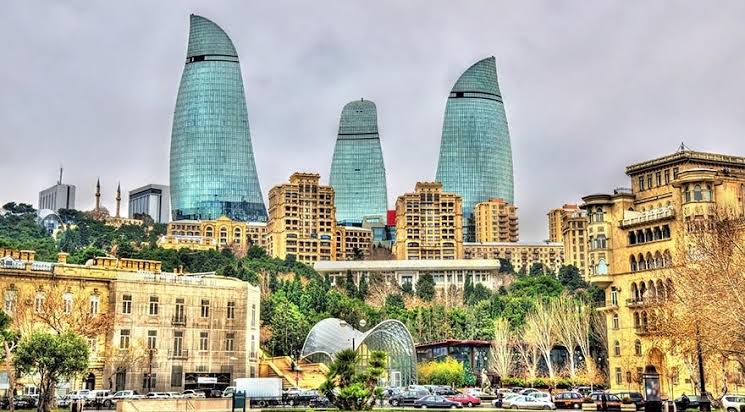
General Information
| Country: | Azerbaijan |
| Region: | The Caucasus |
| Area: | 2,130 km² |
| Language: | Azerbaijani |
| Average temperature: | 14 °C |
| Climate: | Continental climate |
| Vegetation: | Bushes and steppe |
| The difference between GMT: | GMT+4 |
| Telephone Code: | +994-12 |
| Currency: | Azerbaijan Manat (AZN) |
| Socket Type: | Type C, F 220 V/50 Hz |
Location
Baku, the capital of the Republic of Azerbaijan, is located on the West coast of the Caspian Sea. Its neighbors are Iran on the south, Armenia on the west, Georgia on the northwest and Russia on the north.
Best Time to Visit Baku
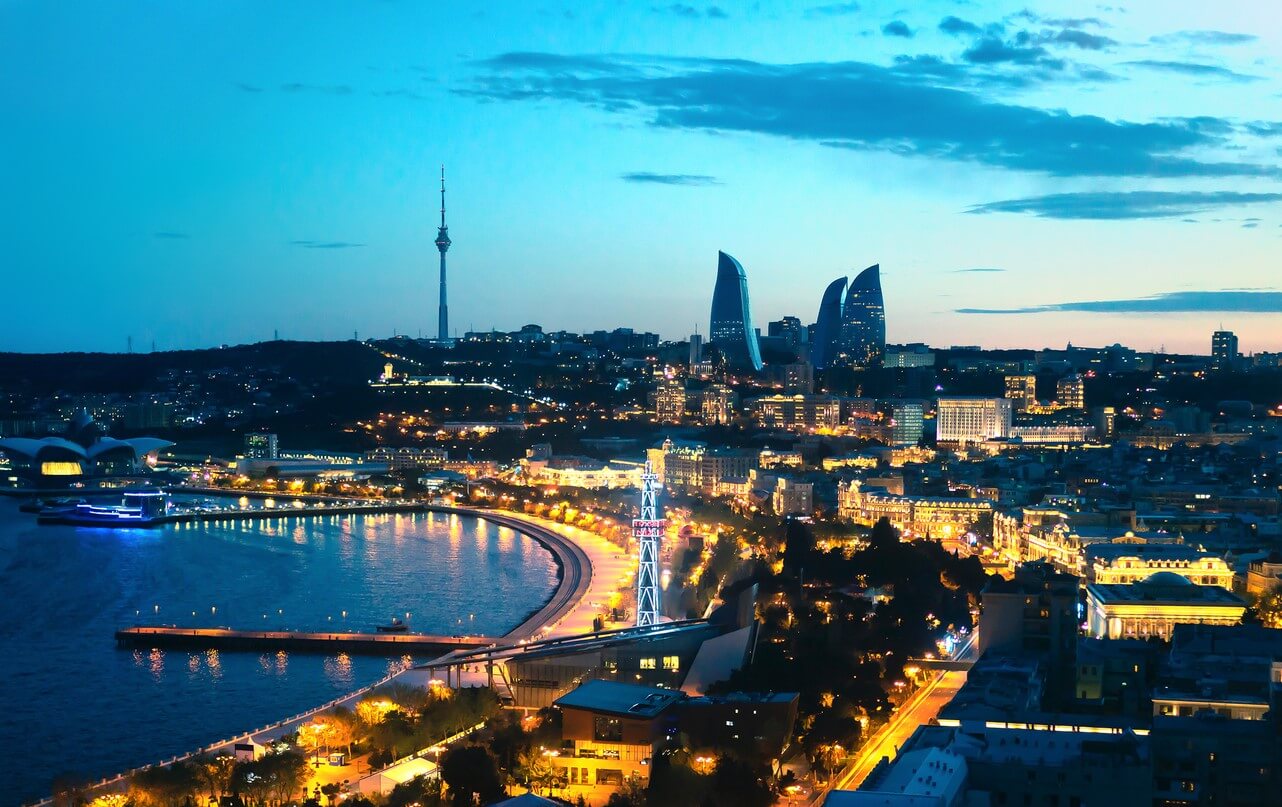
The best times to visit Baku are April, May, September and October. In the spring, the air temperatures range from 20°C to 30°C. In the summer period, the whole country has a dry and hot climate. Especially July and August are extremely hot. It may be difficult to travel in the city because of the high temperatures. In the regions along the Caspian Sea, a mild weather is observed. The temperate climate gradually leaves its place to the continental climate and the weather is harsher in these regions. The mild weather prevails in Baku.
If you are planning a holiday in winter, keep in mind that the weather can be quite harsh. Temperatures range from 2°C to 7°C between December and March. The most intense precipitation of the year is observed in November. The city, which has made significant strides in winter tourism recently, offers different opportunities for visitors who are looking for alternative ski routes.
Festivals
Some important festivals held in Baku are listed as follows;
- March - Nowruz Celebrations
- April - Qara Qarayev Festival (International Contemporary Music Festival)
- May - Rose Day
- June - National Armed Forces Day
- August - Gabala International Music Festival
- September - Uzeyir Hajibeyov International Music Festival
- October - Baku Jazz Festival
- December - International Rostropovich Festival
Travel to Baku
You can go to Baku from Istanbul by road, rail and air. The fastest and most comfortable transportation option is the airline. The distance between İstanbul and Baku is 1760 km by air. You can travel from Istanbul to Baku with direct flights lasting 2 hours and 50 minutes. Direct flights are available from Istanbul airports to Heydar Aliyev International Airport. You may follow campaigns for Baku flights and travel between two cities at attractive prices.
Transportation in Baku
Buses, metro, minibuses and taxis are frequently used in Baku city transportation. There is no card system for Baku buses and minibuses. You can get a the ticket from the bus. Taxis generally do not have a taximeter. Therefore, it is useful to negotiate the price when you take a taxi. In addition to taxi, car rental can also be used in Baku.
Transportation to Baku Airports
You can go to the city center from Heydar Aliyev International Airport, 20 km northeast of Baku, by taxi or airport shuttle service.
Places to Visit in Baku
Established on the western coast of the Caspian Sea, Baku contains many historical buildings. In oil-rich Baku, there are also many places with contemporary architectural constructions built after independence, which are worth visiting.
Icheri Sheher (Old City)
Icheri Sheher, which is called "Tenement District" by the local people, is a region where travelers want to add in the list of places to visit in Baku, as it contains many historical buildings. The Old City, which has been used as a settlement since the Paleolithic period, was accepted as one of the endangered world heritages in 2003 after it was included in the UNESCO World Heritage List in 2000. There are more than fifty historical buildings that you can visit in the Old Town.
Palace of the Shirvanshahs
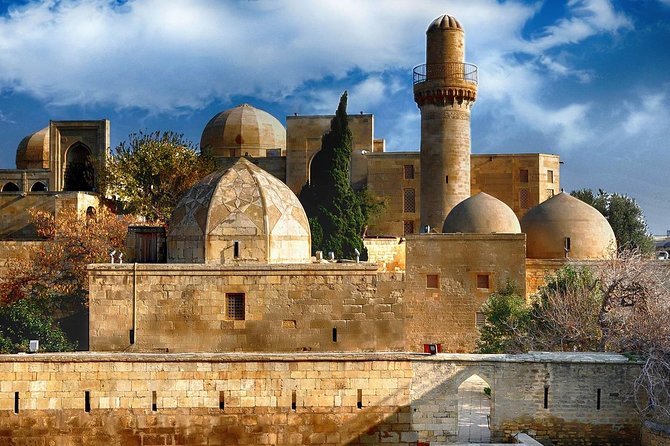
The Palace of the Shirvanshahs, which is considered as one of the most important examples of local architecture, was built in the era of İbrahim Halilullah, the king of the Shirvanshah Dynasty. The 15th century work in the Icheri Sheher, after being used as a hospital and barracks in the past, now serves as a museum. The museum, which you can visit every day of the week between 10.00-18.00, has different sections such as the tomb, mosque and Turkish bath. Besides the belongings of the kings, stained glass, carpet and handmade works are also exhibited in the museum.
Flame Towers
Flame Towers, one of the tallest buildings in Baku, consists of 3 towers used as offices, residences and hotels. Approximately 350 million dollars were spent for the building and it was completed in 6 years. The unique image of the towers is the most important feature of the building, which is considered among the symbols of Baku. The image created by the outer surface that is covered with 10 thousand LED lights illuminates the city like a huge flame in the evenings.
Heydar Aliyev Center
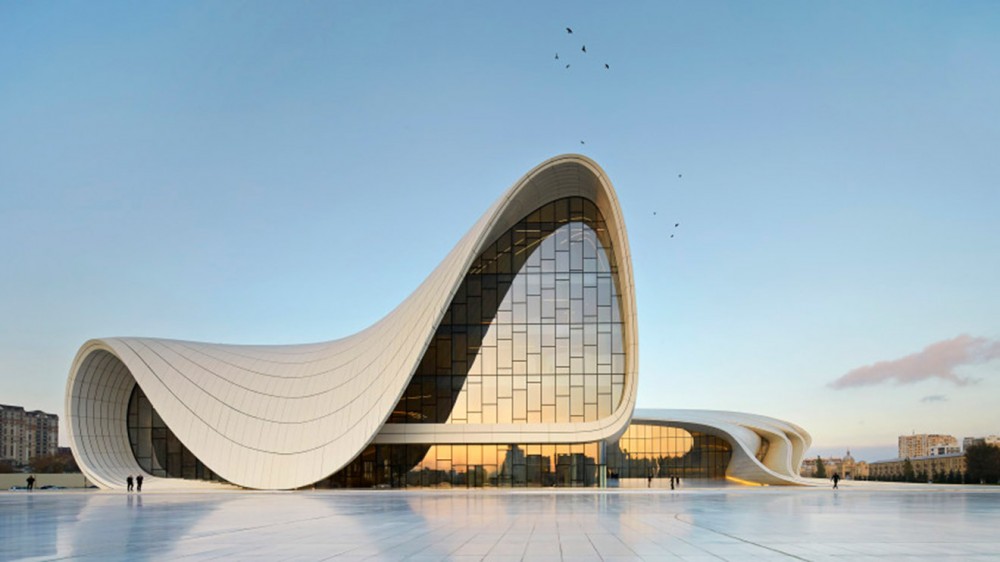
Heydar Aliyev Cultural Center (Heydar Aliyev Center) designed by renowned architect Zaha Hadid was put into service in 2012. Opened on Heydar Aliyev's 89th birthday, the building features concert halls, art galleries, a museum and a library. Heydar Aliyev Center, which carries the signature of Saffet Kaya Bekiroglu in detail design, has become a popular place in Baku.
Yanar Dag (Fire Mountain)
A spark was struck and a tiny hill started to burn at one of the points where the vast natural gas resources of Azerbaijan have infiltrated to the earth. It continues to burn in the rain, snow and all kinds of weather due to continuous gas discharge. With the effect of pressure in the constantly burning gas source, the height of the flames can sometimes reach 3 meters. You can easily visit the area by buses departing from the city center.
Azerbaijan National Carpet Museum
Azerbaijan National Carpet Museum, which holds the title of the world's first and largest carpet museum, was founded in 1967 under the leadership of the carpet maker and painter Letif Kerimov. More than 6,000 carpets are on display at the museum located on Mikayil Hüseynov Street. The carpets collected from different regions of Azerbaijan are sorted according to chronological order and the place of manufacture.
National Museum of History of Azerbaijan
The National Museum of History of Azerbaijan, founded in 1920, consists of two main sections. The biggest museum of Azerbaijan, where ethnographic and archaeological artifacts collected from the first periods of the country, hosts a collection of approximately 300,000 pieces.
Maiden Tower
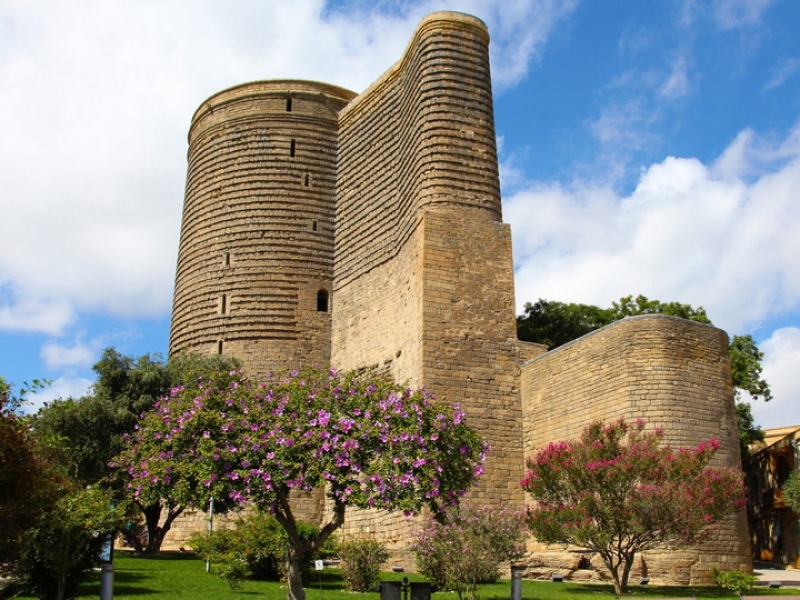
The 27-meter tall Maiden Tower, thought to be an ancient Zoroastrian Temple, was built in the 12th century. The tower, whose history its told in different stories, was used as a lighthouse in the 18th and 19th centuries. The 8-storey building in the southeastern part of the Old City is home to souvenir sellers today. If you climb to the top of the tower, you can take photos of the harbor, the beach and the historical buildings of the Old Town.
Where to Stay in Baku?
There are city hotels where you can comfortably stay in a large part of the city. The fact that tourist activities are located in a certain region of Baku also facilitates to accommodation options. Baku hosts its guests mainly in the Old City, Bayrak Square and Nizami Street regions. Take a close look at 7 city hotels where you can stay in Baku;
- Fairmont Baku Flame Towers
- Park Inn by Radisson Azerbaijan Baku Hotel
- JW Marriott Absheron Baku
- Four Seasons Hotel Baku
- Hyatt Regency Baku
- Winter Park Hotel
- Hilton Baku
What to Eat in Baku?
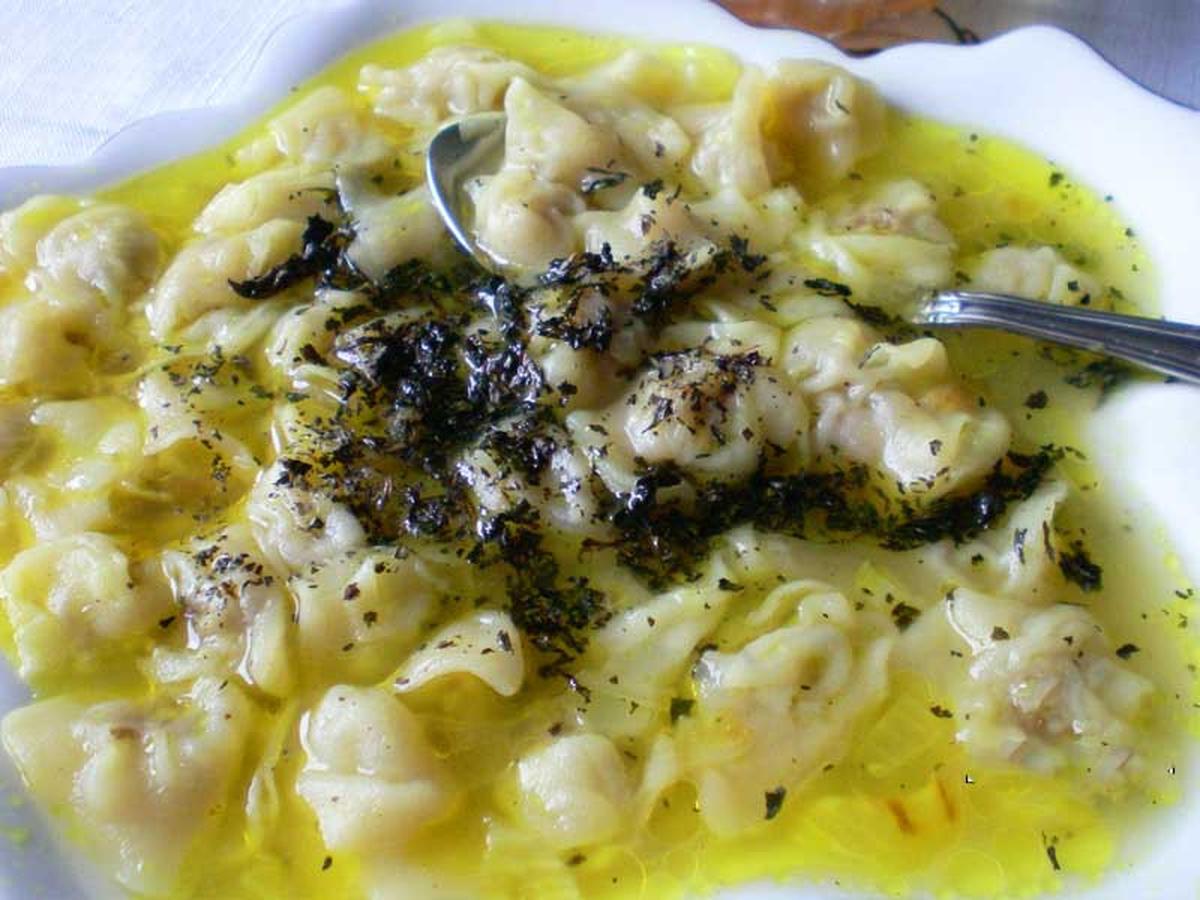
Azerbaijan's food and culinary culture contains all the richness of the geography in which it is located. Soups, kebabs and desserts are among the most prominent dishes of Azerbaijani cuisine. Azerbaijani cuisine culture was especially influenced by Caucasian, Turkish, Iranian, Arabic, Chinese and Indian cuisines.
Baku Cuisine
Do not return without tasting these flavors in Baku;
- Lavangi
- Piti
- Dolma
- Qutab
- Kebab
- Fisinjan
- Dushbara
Baku Restaurants
- Elvet Steakhouse
- Paul's Baku Steakhouse
- Sumakh
- Nergiz Restaurant
- Da Massimo
Shopping in Baku: Best Souvenirs to Buy
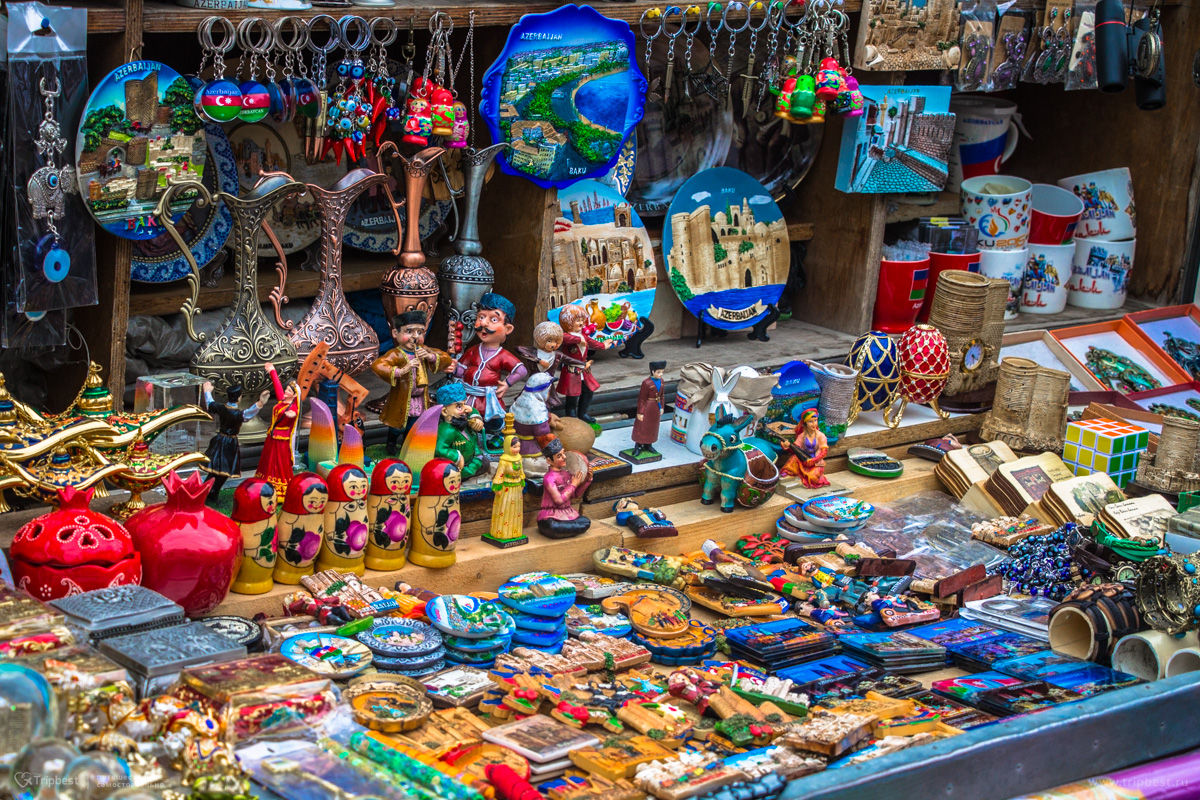
The Nizami Street is definitely on the list of shopping enthusiasts who want to buy souvenirs in Baku. There are many boutique shops and malls where you can shop on the 3.5-kilometer street, which is closed to vehicle traffic.
Nightlife in Baku
Nightlife in Baku is quite colorful. The center of Baku nightlife is located in the Old Town and Fountain Square near the Nizami Street. From here you can easily reach the nightlife of Baku.
Things to Know Before Visiting Baku
- Turkish, Azerbaijani and Russian are spoken in the country.
- Credit cards are widely used but cash is also needed in some places.
- There are exchange offices in many points of the city.
- Smoking is usually allowed in closed spaces.
- In Baku, also known as the windy city, strong winds are effective throughout the year.
What are the emergency numbers in Baku?
Ambulance/Emergency: 103
Fire: 101
Police: 102


